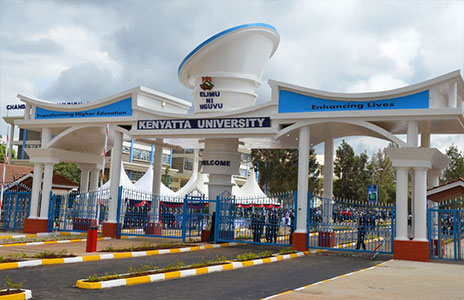
Agricultural education encompasses the study of applied sciences (e.g. biology, chemistry, physics), agriculture, natural resources, land management, and business management principles in readiness for employment in the agricultural sector.
This Bachelor of Science in Agricultural Education and Extension degree program focuses on the needs of individuals and groups and in developing individually satisfying and socially responsible knowledge, skills, and occupational values. Such a focus recognizes the value of experiences as the context in which knowledge and skills are learned.
Agricultural education goes beyond knowledge and skills development in that students are able to develop an understanding of:
- the significance of agriculture in society, through the application of scientific and business principles and problem-solving strategies; and
- the interdependency and relationships between the agricultural industry and other significant businesses are interwoven with the entire economic and social structure of the community, state, nation, and world.
The BSc in Agricultural Education and Extension program prepares graduates for education and leadership positions in agriculture including teaching in schools and colleges. Graduates from this program have the relevant leadership skills necessary to transform agricultural education and extension in Kenya and globally.
The need for agricultural education and none vocational; agricultural for farming and for non-farm occupations requiring knowledge and skill in agriculture is increasing and becoming more apparent. When farming was the occupation of the majority population, much basic agricultural knowledge was commonplace or easily obtained. The agricultural knowledge and abilities necessary for the practical affairs of the living, for effective citizenship, and for a vocational interest are no longer commonplace or easily obtained.
Entry Requirements
- KCSE minimum grade of C+ (plus) with C+ or above in the following subjects: Biology, Chemistry, Agriculture or Geography, Mathematics or Physics or Physical Sciences as specified by Kenya Universities and Colleges Central Placement Services (KUCCPS).
- Grade C in KCSE or its equivalent and a Diploma with a minimum of credit in Agricultural education or related agricultural course, Environmental Science, Applied Biology, Agribusiness or any other related discipline from a recognized Institution.
- Mean grade of C- at KCSE and progressed from certificate to Diploma at Kenyatta University or any other recognized/accredited Institutions.
Objectives of Bachelor of Science in Agricultural Education and Extension
The aim of the BSc program in Agricultural Education and Extension is to produce highly trained technical manpower with practical knowledge and skills in agriculture, biology, and education necessary for effective performance in productivity, commercialization, and competitiveness in agriculture production and rural development.
The skills and knowledge acquired will enable trainees to communicate effectively; demonstrate creativity and initiative to various individuals and groups in the field of agriculture and education.
One of the major purposes of agricultural education is to apply the knowledge and skills learned in several different disciplines to agricultural education.
The primary aim of this program is to prepare graduates with appropriate technical and professional competencies in agriculture, biology, and extension Education.
The course will specifically prepare students to:
- Acquire knowledge that will build competence in agricultural extension and education.
- Use skills and knowledge acquired to efficiently deliver agricultural extension services.
- Impart knowledge and skills in teaching agriculture and biology in secondary schools and mid-level institutions.
- Plan and teach agriculture and biology in secondary schools, teacher training colleges, and agricultural institutions;
- Develop, implement and evaluate agricultural Education programs;
- Plan, implement and evaluate agricultural extension and rural development programs;
- Manage Educational and agricultural organizations;
- Design and conduct research in agricultural Education and agricultural extension;
- Develop and conduct training in agricultural extension and;
- Pursue further Education in agriculture, agricultural Education or extension.
The graduates acquire the requisite skills to teach agriculture and other biological courses in schools, teacher training colleges, and agricultural institutions. They also acquire the necessary capacity to design and conduct research in agricultural education and extension. In addition, the graduates have the knowledge and skills necessary for effective information and service delivery in the agricultural sector.
What you will study
Year 1
- History and Development of East African Agriculture
- Physiology and Anatomy of Farm Animals
- Fundamentals of Mathematics
- Cellular Basis of Life
- Introduction to Genetics
- Lab. Methods and Techniques in Zoology
- Introduction to Psychology
- Introduction to Critical and Creative Thinking
- Fundamentals of Agricultural Education and Extension
- Agricultural Zoology
- Fundamentals for Chemistry
- History of Education
- Communication Skills
- Entrepreneurship
- Survey of Plant Kingdom
- Plant Morphology and Anatomy
Year 2
- Principles of Soil Science
- Principles of Animal Breeding
- Statistics for Agriculture
- Principles of Crop Production
- Curriculum Development
- Instruction methods
- Developmental Psychology
- Invertebrate Zoology
- Agricultural Field Engineering
- Animal Nutrition and Feeds
- Agricultural Production Economics
- Sociology of Education
- Psychology of Learning
- Plant Ecology
- Vertebrate Zoology
- Rural Sociology
Year 3
- Soil Fertility and Plant Nutrition
- Annual Crops Production
- Agricultural Entomology
- Educational Technology
- Philosophy of Education
- Human Biology
- Ruminant Animal Production
- Plant Physiology and Biochemistry
- Taxonomy of Higher Plants
- Research Methods
- Principles and Methods of Agricultural Extension
- Crop Diseases and Management
- Methods of Teaching Biology
- Methods of Teaching Agriculture
- Teaching Practicum (TWO UNITS)
Year 4
- Extension Program Planning, Implementationand Evaluation
- Comparative Education
- Educational Administration
- Educational Testing & Measurement
- Agricultural Marketing
- Evolutionary Biology
- Soil and Water Conservation
- Vegetable and Fruits production
- Perennial Crops
- Organic Farming and Agroforestry
- Non-ruminant Animal Production
- Agricultural Policy and Law
- Economics of Education & Educational Planning
- Animal Health and Diseases
- Farm Business Management
- Field Attachment
Related articles
-

A Guide to Civil Engineering Degree and Diploma Programs in Kenya
08-Nov-2025 -

Electrical Engineering in Kenya: A 2025 Guide for KCSE Graduates
08-Nov-2025 -

Mechanical Engineering in Kenya: A 2025 Guide for KCSE Graduates
08-Nov-2025 -

Engineering Courses in Kenya: A Guide for 2025 KCSE Graduates
08-Nov-2025 -

Education Pathways in Kenya — From Basic Education to Tertiary | College Guide
06-Nov-2025 -

The Bird and the Mirror: A Reflection on Identity, Perception, and Illusion
07-Feb-2025
Colleges offering Bachelor of Science in Agricultural Education and Extension

Starehe
University of Nairobi

Ruiru
Kenyatta University

Laikipia West
Laikipia University

Kisumu West
Maseno University

Chuka Igambangombe
Chuka University

Kilifi South
Pwani University

Kitui West
South Eastern Kenya University

Runyenjes
University of Embu

Tharaka

